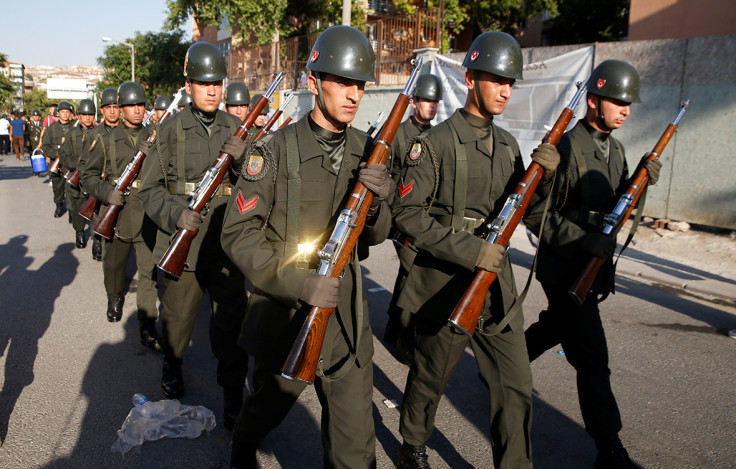Turkish officers sought asylum in Nato countries after failed coup amid growing EU-Turkey tensions
While EU ministers warned Turkey to respect human rights, the UK softened its stance after the Brexit vote.
A number of Turkish military officials working for Nato have requested asylum in the countries where they are posted following the failed July coup, the alliance's secretary-general Jens Stoltenberg confirmed on 18 November.
Stoltenberg told a conference in Brussels the requests will "be assessed and decided" as a national matter in each Nato country where the officers have sought asylum. While he did not name the countries, German media reported some of the officers sought asylum in Germany. According to the reports, as many as 60 Turkish diplomatic officials have refused to go back to Turkey at the end of their assignment, fuelling tensions between Berlin and Ankara.
Turkish authorities are carrying out an extensive security clampdown, including the dismissal of hundreds of senior military staff serving with Nato in Europe and the US in the coup aftermath.
"We have seen a number of changeovers in the Nato command structure where Turkish personnel has been changed," Stoltenberg said, adding: "I expect Turkey to fill all its posts at the Nato command structure."
The Turkish government declared a state of emergency in reaction to the failed coup, which was thought to be staged mainly by the gendarmerie and the air force personnel loyal to the US-based cleric Fethullah Gulen, a rival of President Recep Tayyip Erdogan. More than 110,000 people in the military, civil service, judiciary, in the press and in teaching positions, have been suspended, sacked or arrested and awaiting trial.
The unprecedented crackdown sparked concerns over human rights violations. Stoltenberg reiterated that democratic freedoms and the rule of law are part of Nato's core values and he was assured by the Turkish leadership that, while they would be prosecuting those responsible for the coup, "this will also be done in accordance of the rule of law".
At a press conference on 18 November following a visit to the country, the UN rapporteur on freedom of expression, David Kaye, urged the government to release those arrested as "nobody should be held in detention for expressing opinions that do not constitute an actual incitement to hatred or violence".

To punish coup plotters, Erdogan has vowed to reintroduce the death penalty in the country, which was abolished in 2004 as part of the negotiations to enter the European Union. The president of the European Parliament Martin Schulz said that this would mean giving up in the accession talk, but Erdogan rebuffed: "Look at this impertinent man saying 'we'll impose sanctions.' How can you, who have refused to take Turkey into the EU for 53 years, find the authority to make such a decision?"
While several European foreign ministers created a united front in criticising Turkey's post-coup crackdown, UK Foreign Secretary Boris Johnson took a more moderate stance. "We should not push Turkey into a corner, we should not overreact in a way that is against our collective interests," he said, Reuters reported.
Backing the Leave side in the Brexit referendum, Johnson fiercely opposed Turkey's EU membership bid and, writing in The Telegraph, described president Erdogan as "a man who is engaged in a chilling suppression of Turkish freedom of expression." But while visiting Turkey in September as foreign secretary, Johnson reversed his position, promising to "help Turkey in any way" with its accession bid.
At an event organised in Westminster about the relations between Turkey, the EU and the UK by the Centre for Turkish Study, Conservative MP Geoffrey van Orden backed Johnson's offer of support to Turkey as a way to keep exercising an influence on Erdogan. "It would be a catastrophe if Turkey were to fall in a different [sphere of influence]. How do we maintain good relations is the key question. Being helpful is in our self-interest" he said, referring to the strategic importance of Turkey as a Nato member.
Labour MP Stephen Kinnock agreed on the importance of keeping good relations and building bridges with Turkey, but, he warned: "we also need to be robust in condemning" the arrests and potential abuses of power.
© Copyright IBTimes 2025. All rights reserved.






















